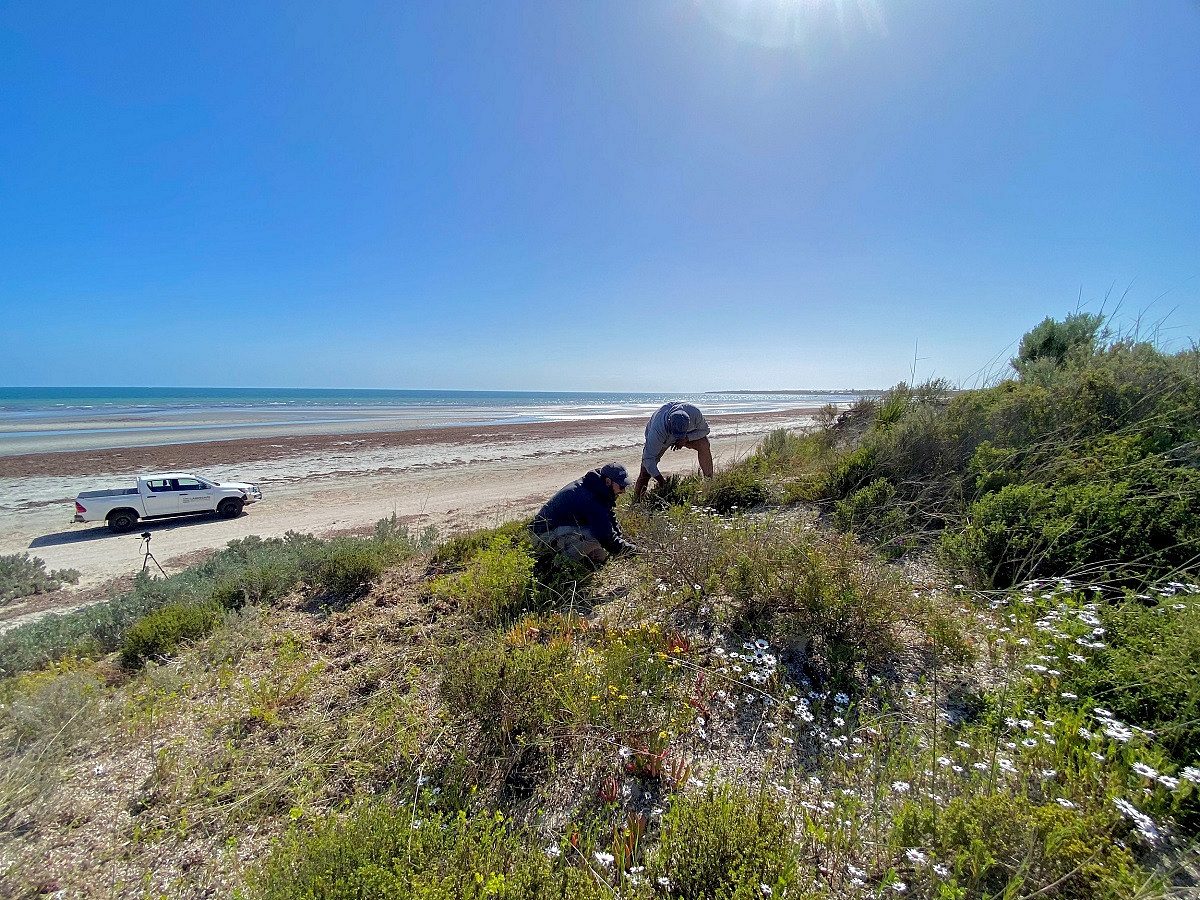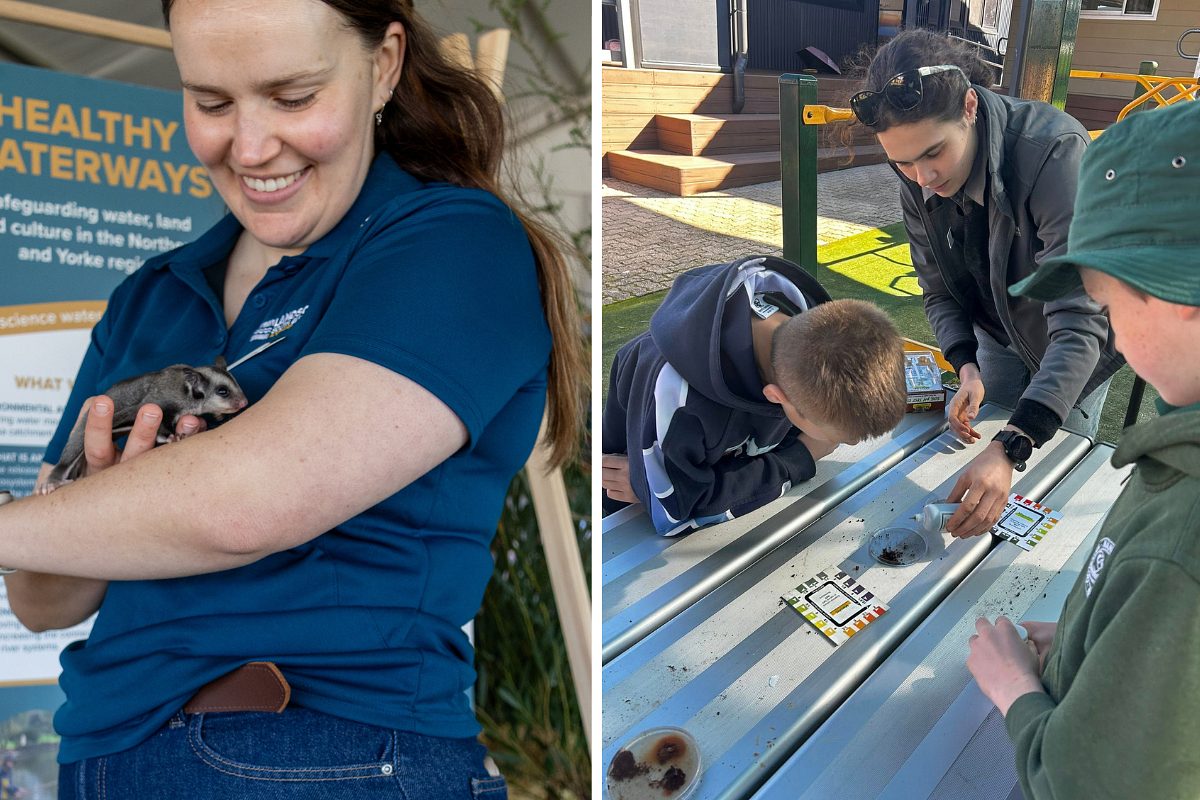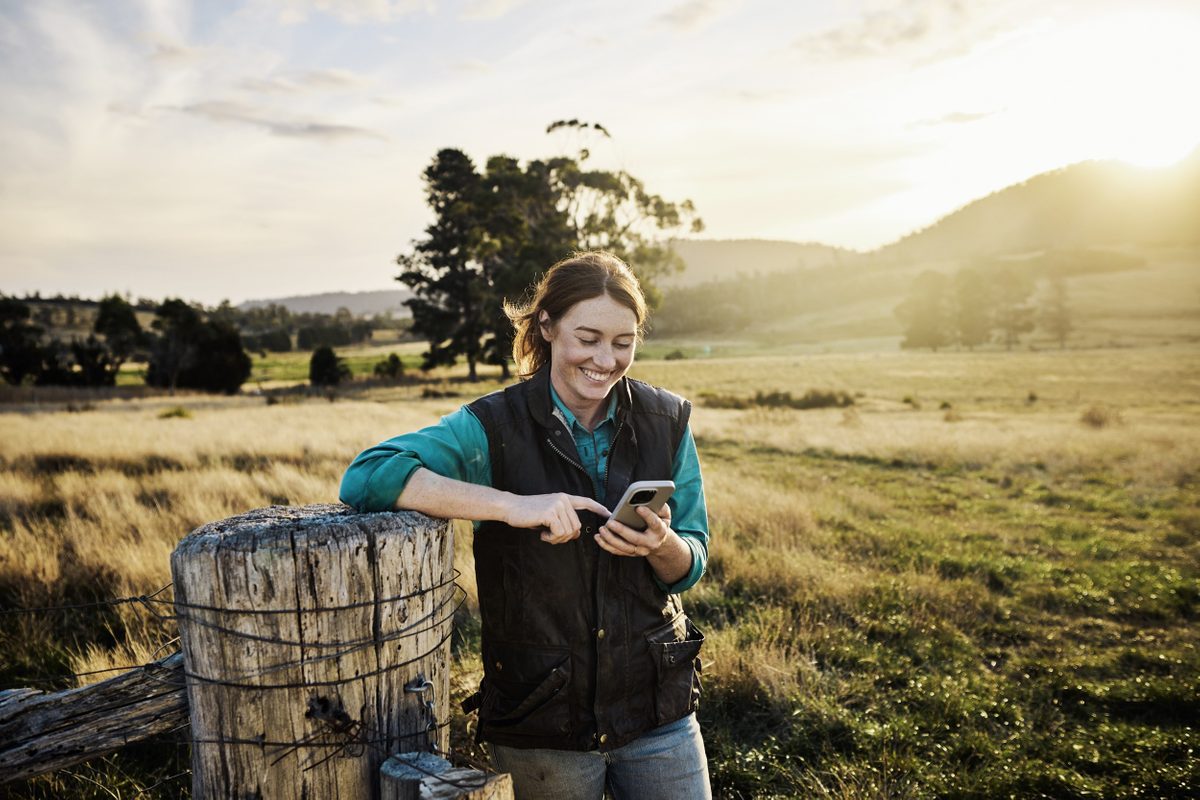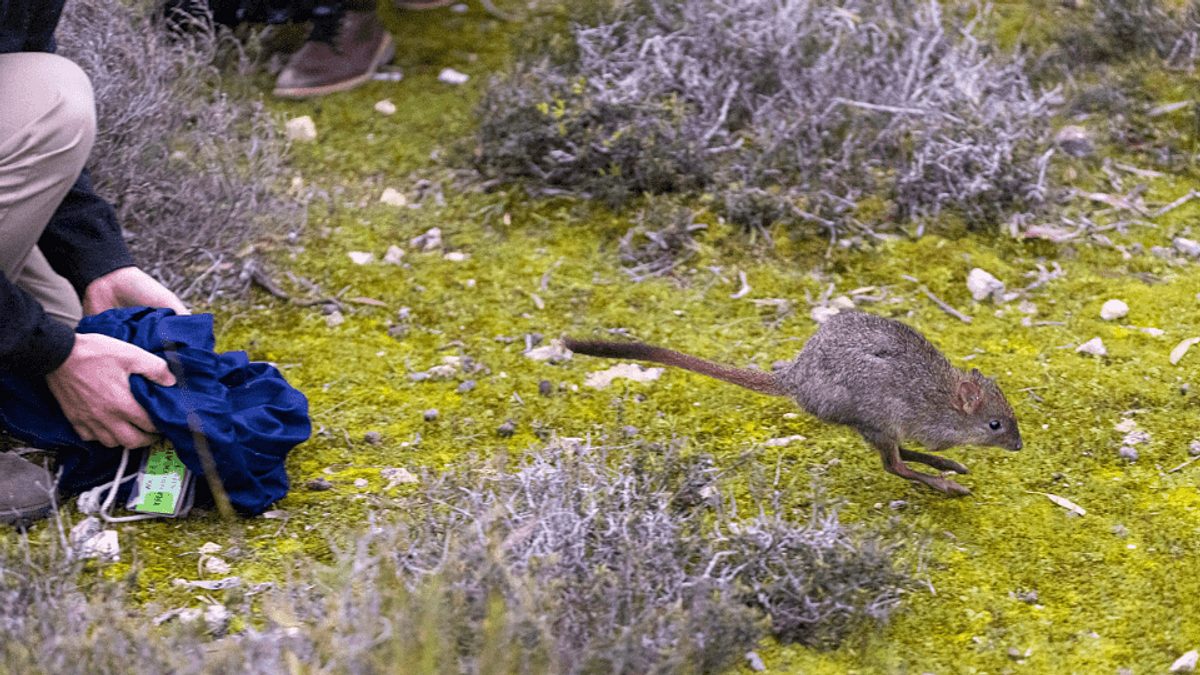New weed detected at Wallaroo’s North Beach
Landscape officers from the Northern and Yorke Landscape Board have uncovered a new weed incursion in the coastal dunes of North Beach Wallaroo that requires immediate action to prevent invasion.
While inspecting and treating declared weeds in the area, the landscape officers exposed the garden escapee known as cape marigold (Dimorphotheca pluvialis), an annual African daisy species that has only appeared in South Australia on a few occasions.

Northern and Yorke Landscape Board Officer Nick Nicholls said that it scores 6 out of 9 for its level of invasiveness based on an Adelaide coastline rating.
“It’s not a declared weed, but is identified as a Red Alert species, which means immediate action is required,” he said. “Cape marigold can quickly dominate areas, especially dunes and sandy or disturbed soil. If it becomes established in a dune system, it would be near impossible to eradicate.
“We discovered the 20-metre square infestation at North Beach, which contained thousands of individual plants, but luckily it hadn’t spread to a larger area. We’re confident it can be eradicated with ongoing management.
“It’s still unknown where the infestation originated because the closest home is 400 metres away, but we expect it to be a garden escapee, as it’s a highly ornamental plant.”

Garden escapees are plants grown in home gardens that escape into the natural environment and become serious environmental weeds. They threaten local native plants, reduce habitat for native fauna and can even alter the shape and make-up of the coastal dune system.
Plants that cause problems often originate from regions with similar climates, such as the Mediterranean and South Africa. Thriving in similar conditions, they out-compete local native plants as they don’t have the pests and diseases that controlled them in their original environment.
Cape marigold looks very similar to another garden escapee, the African daisy Osteospermum ecklonis that is a common coastal weed on Yorke Peninsula.
Gardeners can help care for our region’s biodiversity by removing common garden escapees, not sharing them with others and planting locally indigenous species that have adapted to survive harsh conditions and provide habitat for birds, butterflies and small lizards.
The Northern and Yorke Landscape Board offers a free resource online to help with coastal plant selection: Coastal gardens: A planting guide.


